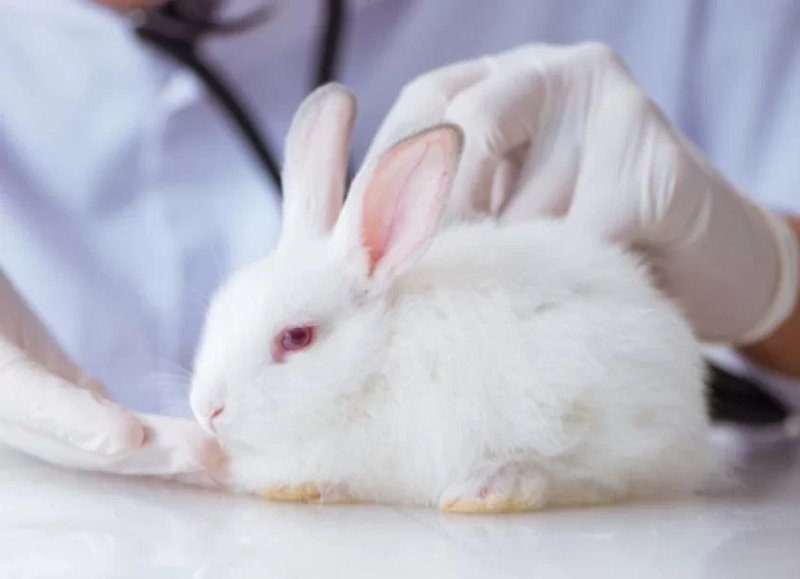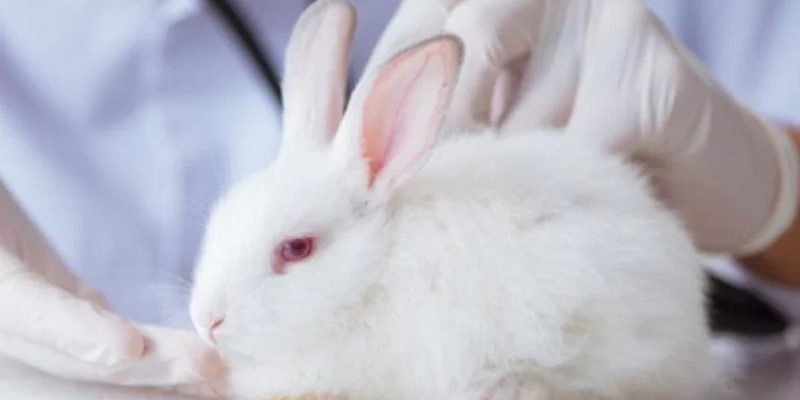
So, what kind of issues should you be aware of? Well, Dutch rabbits can face specific health problems that come with their unique characteristics. Knowing these conditions helps you spot symptoms early, so you can take action before they become serious. Grab a cup of coffee and let’s dive into the world of Dutch rabbit health!
Common Health Issues in Dutch Rabbits
Dutch rabbits are generally hearty critters but aren’t immune to certain health issues. Some of these may surprise you. Here are some common problems that Dutch rabbit owners might encounter:
Dental Issues
Dental problems are quite common in rabbits, especially in breeds like the Dutch rabbit. Their teeth grow continuously, which means they need to chew on things to keep them trimmed down. If they don’t get enough fiber, their teeth can become overgrown, leading to pain, difficulty eating, and other complications. You might notice your bunny is drooling more than usual or having trouble munching on their favorite hay.
To prevent dental issues, offer plenty of fresh hay and chew toys made from wood. Regular check-ups at the vet can help ensure your bunny’s teeth are in tip-top shape. A healthy diet rich in fiber is a must!
Obesity
Let’s be honest: who doesn’t love a chubby bunny? However, excess weight can lead to significant health problems for Dutch rabbits, including heart disease and arthritis. It’s like having a friend who’s carrying around a heavy backpack—it can weigh them down and make everything more challenging.
To keep your Dutch rabbit at a healthy weight, monitor their food intake. A balanced diet should consist mainly of hay, fresh greens, and occasional pellets. Avoid overindulging in treats, even if those begging eyes are hard to resist. Regular exercise is also key, so encourage playtime outside their cage!
Skin and Fur Problems
A rabbit’s coat is not just for looks; it plays an essential role in their overall health. Dutch rabbits can experience skin and fur problems, including mites or fungal infections. These issues can lead to itching, hair loss, and even skin infections.
To prevent these conditions, keep your bunny’s living area clean. Regular grooming also helps reduce the risk of skin problems. Watch for signs of discomfort, like excessive scratching. If your bunny’s coat looks dull or they have bald patches, it’s best to consult your veterinarian for advice on treatment.
Respiratory Infections
Dutch rabbits can also be prone to respiratory issues, especially if they are kept in damp or poorly ventilated spaces. Symptoms may include sneezing, nasal discharge, and labored breathing. Think of it like catching a cold, but for your bunny.
To minimize the risk of respiratory infections, ensure their living area is clean and dry. Avoid using strong-smelling cleaners or sprays that might irritate their sensitive noses. Good air circulation is essential, so consider where you place your rabbit’s habitat.
Digestive Problems and GI Stasis
Digestive problems can be quite serious for rabbits. Dutch rabbits are not immune to gastrointestinal (GI) stasis, a condition where the digestive system slows down or stops entirely. This can be life-threatening if not caught in time. Symptoms to watch for include a decrease in appetite, smaller droppings, or lack of droppings altogether.
To help prevent GI stasis, focus on providing a diet high in fiber, especially hay. Encourage hydration by ensuring fresh water is always available. Regular exercise is also crucial—bunnies love to hop around and explore, which helps keep their digestive systems running smoothly.
Urinary Tract Issues
Urinary tract problems can also affect Dutch rabbits, often manifesting as frequent urination or blood in the urine. These symptoms can point to issues like bladder stones or infections—definitely not something to ignore. You might feel a sense of urgency to help your little one, much like when you see someone struggling and want to intervene.
Keeping your bunny’s living space clean and providing plenty of fresh water can help prevent these issues. A balanced diet low in calcium can also reduce the risk of bladder stones. If you notice anything unusual, don’t hesitate to consult your veterinarian.
Monitoring Your Dutch Rabbit’s Health
Understanding your Dutch rabbit’s behavior and habits can go a long way in spotting health problems early. Just like you know when a friend isn’t feeling well, getting to know your bunny’s normal behavior is essential. If they seem a bit off, it’s usually a good idea to check in with the vet.
Regular vet visits are crucial for preventive care. Not only can your vet catch early signs of potential issues, but they can also provide personalized advice based on your bunny’s specific needs. This way, you’ll be equipped to handle any health problems that might come your way.
Final Thoughts
Caring for a Dutch rabbit is a rewarding experience, but it comes with its unique challenges. By staying informed about common health problems and taking preventive measures, you can help ensure your bunny leads a happy, healthy life. Providing a balanced diet, regular check-ups, and a clean living environment will go a long way in avoiding health issues.
Remember, a healthy Dutch rabbit is a happy rabbit! With a little love and attention, your fluffy friend will thrive and keep you entertained with their playful antics. So, get ready for lots of snuggles and bunny kisses!

